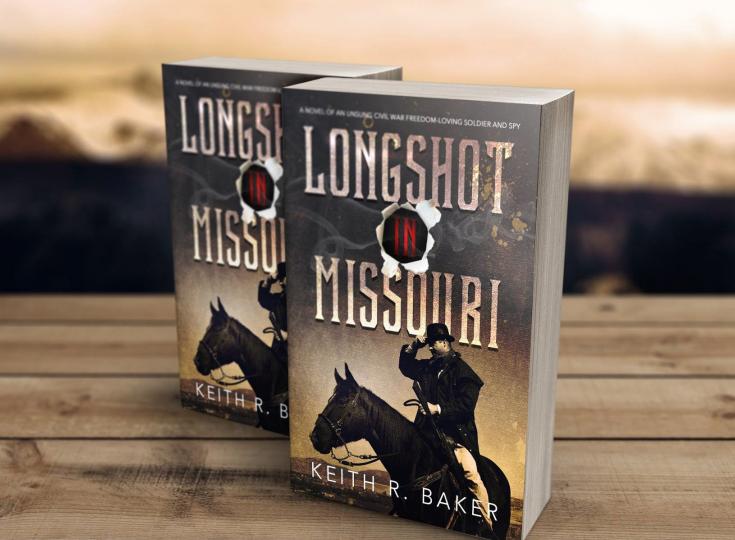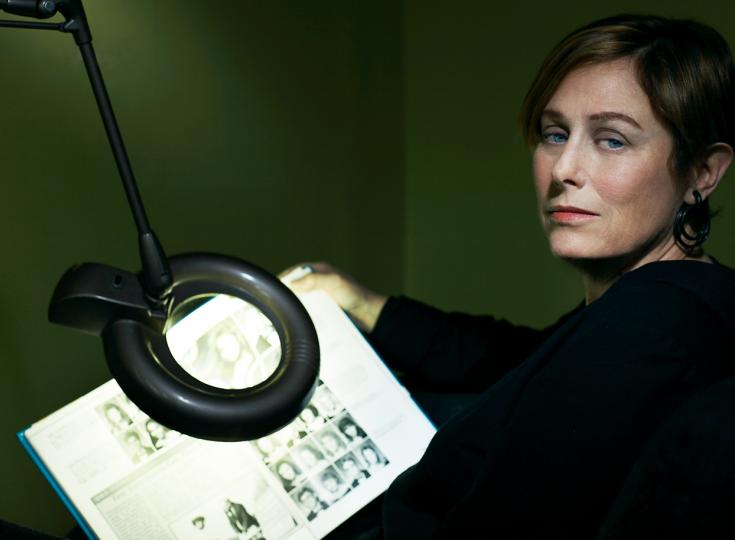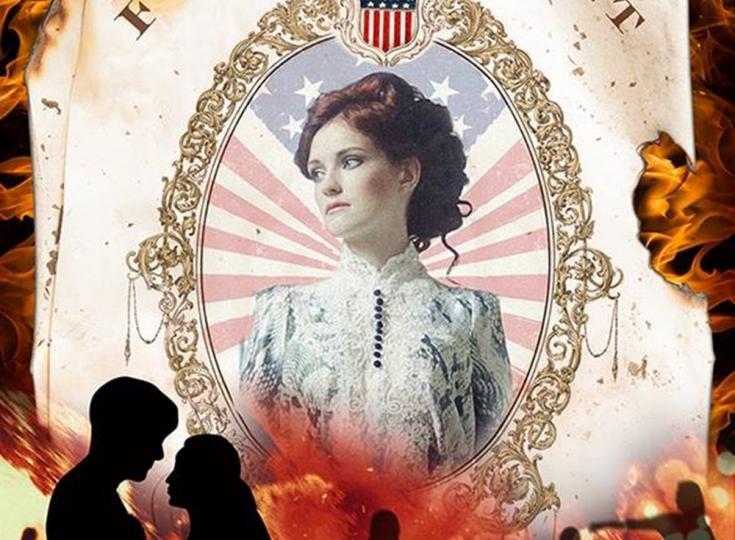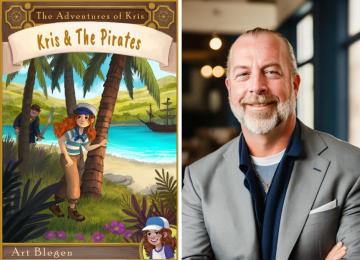Raymond Finkle - In Any Good Story, The End Is Impossible to Predict
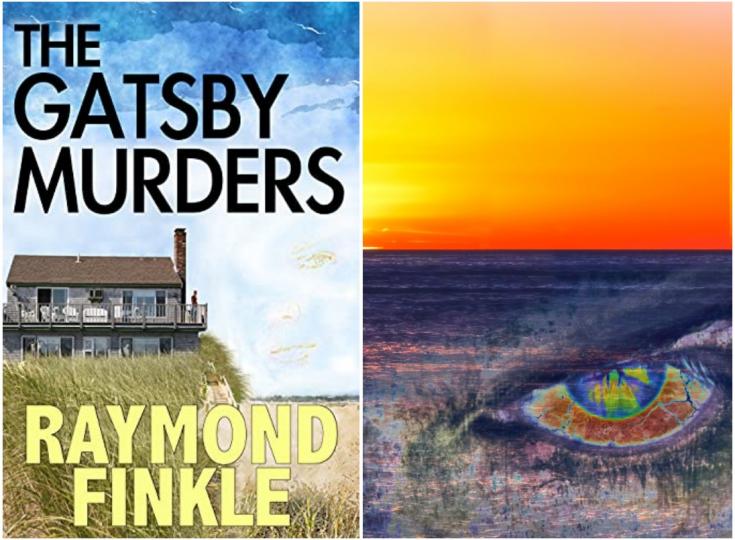
Raymond Finkle is a physician who writes mystery and suspense thrillers. After receiving his MD in 2005, he wrote his first novel, The Mendelian Protocol, a thriller that touches on his fascination with genetic engineering. Since then, he has branched out to writing action thrillers (Sky Heist) and historical mystery (The Gatsby Murders). He also likes to throw in the occasional dash of horror (Three Stories). His work is available on Amazon. As our Author of the Day, he tells us all about his book, The Gatsby Murders.
Please give us a short introduction to what The Gatsby Murders is about.
Nantucket, 1985- Chris gets a job at a dive bar, but things take a turn for the worse when he discovers a corpse. Then the killer starts communicating with him using passages from The Great Gatsby. As the puzzle unwinds, Chris questions his own sanity. He struggles to decipher the meaning in hopes he won’t become another literary casualty. The end is, like in any good story, impossible to predict.
Tell us more about Chris. What makes him tick?
Christopher Harding, the protagonist, drops out of medical school because he is disenchanted with his chosen career path. He finds himself a bit lost and moves to Nantucket because his friend needs a winter caretaker. He finds a new group of friends when he begins working at a dive bar and before long he finds love. But it isn’t long before he realizes that he can’t just become another person as easily as changing his address.
Why did you pick 1985 Nantucket as the backdrop for your story?
I spent time on Nantucket as a kid in the 1980s, so this book was unadulterated nostalgia for me. Anyone who has spent time in the summer on Cape Cod or the islands knows that the environment there is uniquely beautiful, such that words don’t do it justice.
Besides writing, what other secret skills do you have?
I’m an MD. I graduated from medical school fifteen years ago and have been working as a physician ever since. I wrote my first novel, The Mendelian Protocol, during medical school and finally started writing again in earnest when the pandemic hit. I find it therapeutic—like reading, one can get lost in a book while writing it.
Why murder-mystery thrillers? What drew you to the genre?
The Gatsby Murders is different from my first two novels which contain medical sci-fi, but they all have the same thread that I aim for—beach read page-turners you can’t put down. I always loved Agatha Christie and especially her classic And Then There Were None, and I hoped this island mystery would evoke some of her genius. But probably not. I mean, let’s be honest.
Did you plan out the entire plot or did a lot of it just "happen" along the way?
I typically have a rough outline of the plot but often find my subconscious veering off the road onto strange, uncharted paths. That’s the fun of writing. I go into a trance and when I wake up I learn that the characters have done some outlandish things.
Tell us more about the cover and how it came about.
I piece the covers together after purchasing stock photos, and find it to be both cathartic and extremely painful. I’m not much of an artist but I spend so much time on them I finally get them—if not exactly right, at least acceptable. I wanted to evoke a ‘beach house vacation’ feeling with this cover and I think it worked. My wife helps— usually by nixing my first 115 drafts— and in this case she wanted to get rid of the woman’s face in the clouds, but I overruled her.
How much research did this book require from you to make the history part of it feel authentic?
I didn’t do much research except regarding the Nantucket Light Ship which, like the character in the book, I was vaguely aware of but didn’t actually know the story behind it. Like much of the island’s history, it is pretty fascinating.
What did you have the most fun with while writing The Gatsby Murders?
I enjoy trying to describe the beauty of that island, which lets me pretend I’m there.
Where do you go for inspiration?
I find inspiration at my desk, seated in front of my computer, with a large Starbucks Italian Roast made by my Keurig. Coffee is my muse, and my inspiration comes from having a day off and waking up early to write.
Do you have any interesting writing habits? What is an average writing day like for you?
My brother helps by editing the books and giving me advice. Mostly he makes fun of me, but in a helpful way. As for my process, I find I can only really write in the morning. On days I have time to write I often wake up spontaneously at 4 or 5 a.m. and start writing because I know that no one will bother me for at least a couple of hours. I can’t write in the afternoon or evening—or at least, I never want to. I don’t force myself to write because for me, it’s a fun hobby. In a way, I would like it to become a job, because that implies I would be making money, but it would also ruin it. My hope is that some internet millionaire makes one of my novels into the next Sharknado. Then I will have made it.
What are you working on right now?
I’m a month or so away from releasing ‘The Armageddon Prophecy’ which is about a doctor who uncovers a murderous religious cult in rural Colorado. I’m currently writing a thriller tentatively titled ‘Air Heist’ that is part ‘Ocean’s Eleven’, part NTSB airline disaster investigation. I have no idea where that came from, but I’ve almost finished the first draft, which means I’m about six months away from publishing it.
Where can our readers discover more of your work or interact with you?
My website is the easiest way to find info on me. Sign up for my mailing list and I will email you with discounts and new releases, and you can sign up to become an advanced reader for free.

